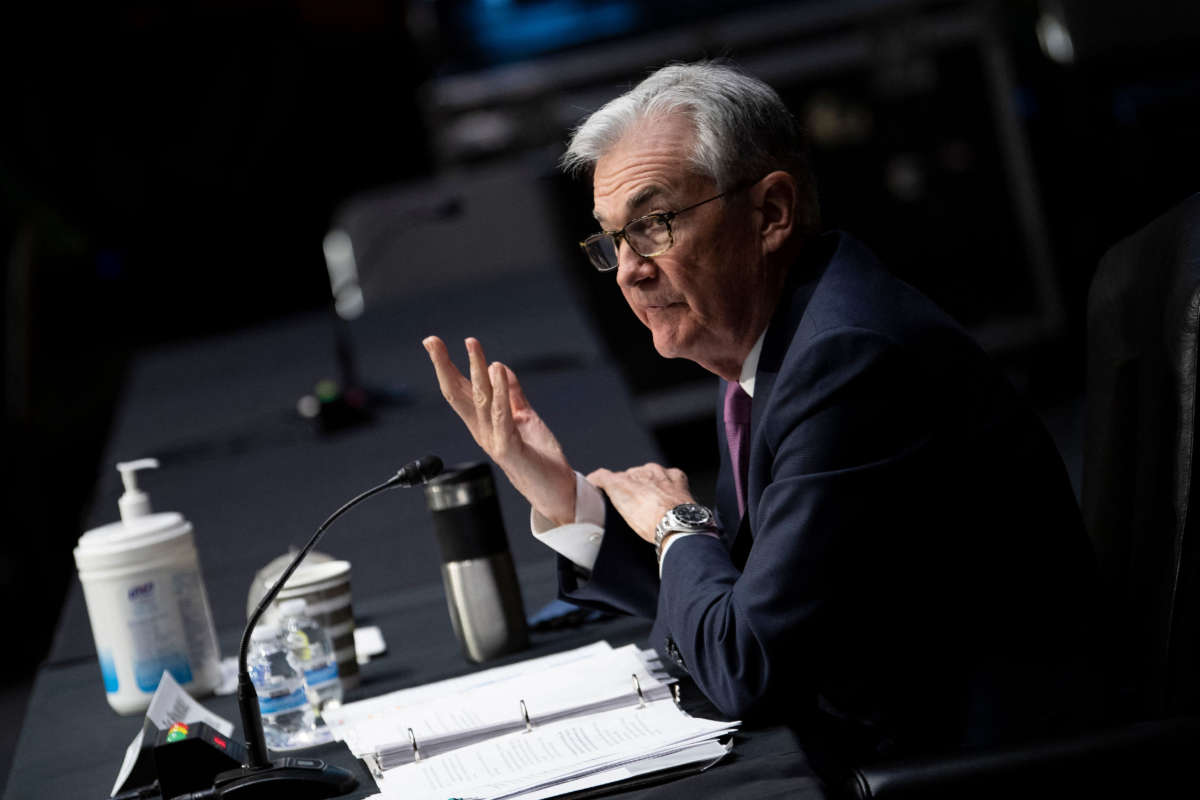In a hearing before the Senate Banking Committee on Tuesday, Federal Reserve Chair Jerome Powell said that corporations may be raising prices arbitrarily to pad their profits while the public suffers under high inflation rates.
Powell said that higher prices for commodities like groceries could be chalked up to corporate greed, at least partially. This statement echoes recent research that shows that businesses are seeing some of their highest profit increases since 1950, using inflation as an excuse to reach further into consumers’ pockets.
The statement came as the result of prodding from Sen. Elizabeth Warren (D-Massachusetts). During a confirmation hearing for Powell’s renomination to lead the most powerful financial institution in the country, Warren questioned whether or not the Fed chair believed that corporations were fleecing customers as corporate concentration is on the rise.
“Does that increase in profit margins combined with greater market concentration in industry after industry suggest to you that some corporations may be passing along increased costs and, at the same time, charging more on top of that to fatten their profit margins?” Warren asked.
“That could be right. It could also just be, though, that demand is incredibly strong and that they’re raising prices because they can,” Powell said.
“Well, that’s the point. They’re raising prices because they can and not being competed down,” Warren responded. Consumers aren’t just offsetting inflation for raw materials for corporations, she pointed out – they’re also paying more out of pocket.
This isn’t the first time Warren has brought attention to the issue. In December, the Massachusetts lawmaker sent a letter to large grocers that have been raising prices, expressing similar concerns regarding inflation. Kroger, Publix and Albertsons have been reporting high profits as grocery bills have increased by over 6 percent on average over the past year, Warren wrote.
Reporters have pointed out that fears about inflation may be overstated, however. As Hadas Thier wrote for Truthout, wages are currently rising at a similar rate to inflation – meaning that worries about inflation, as sensationalized by conservative lawmakers and the media, could be a tool for corporations to create conditions for price gouging.
During the hearing, Powell sounded the alarm on inflation, saying that it could throw a wrench into the country’s economic recovery from the pandemic and potentially hamper jobs recovery. This hearing comes ahead of January’s inflation report, which the Financial Times reports is expected to show the consumer price index rising annually by 7 percent.
Powell also claimed during the hearing that the country no longer needs policies that were put into place as protection against the financial impact of the pandemic. During his tenure, Powell rolled back measures that were intended to protect the economy after the Great Recession, which has led economists to question whether he intends to protect consumers or whether he would rather throw favor to Wall Street through deregulation.
Lawmakers, including Warren, have repeatedly criticized decisions that the Donald Trump nominee made during his tenure. But President Joe Biden renominated the Fed chair despite warnings that Powell hasn’t been doing enough to address the climate crisis and that he has a poor record on financial regulation.
3 Days Left: All gifts to Truthout now matched!
From now until the end of the year, all donations to Truthout will be matched dollar for dollar up to $38,000! Thanks to a generous supporter, your one-time gift today will be matched immediately. As well, your monthly donation will be matched for the whole first year, doubling your impact.
We have just 3 days left to raise $38,000 and receive the full match.
This matching gift comes at a critical time. As Trump attempts to silence dissenting voices and oppositional nonprofits, reader support is our best defense against the right-wing agenda.
Help Truthout confront Trump’s fascism in 2026, and have your donation matched now!
